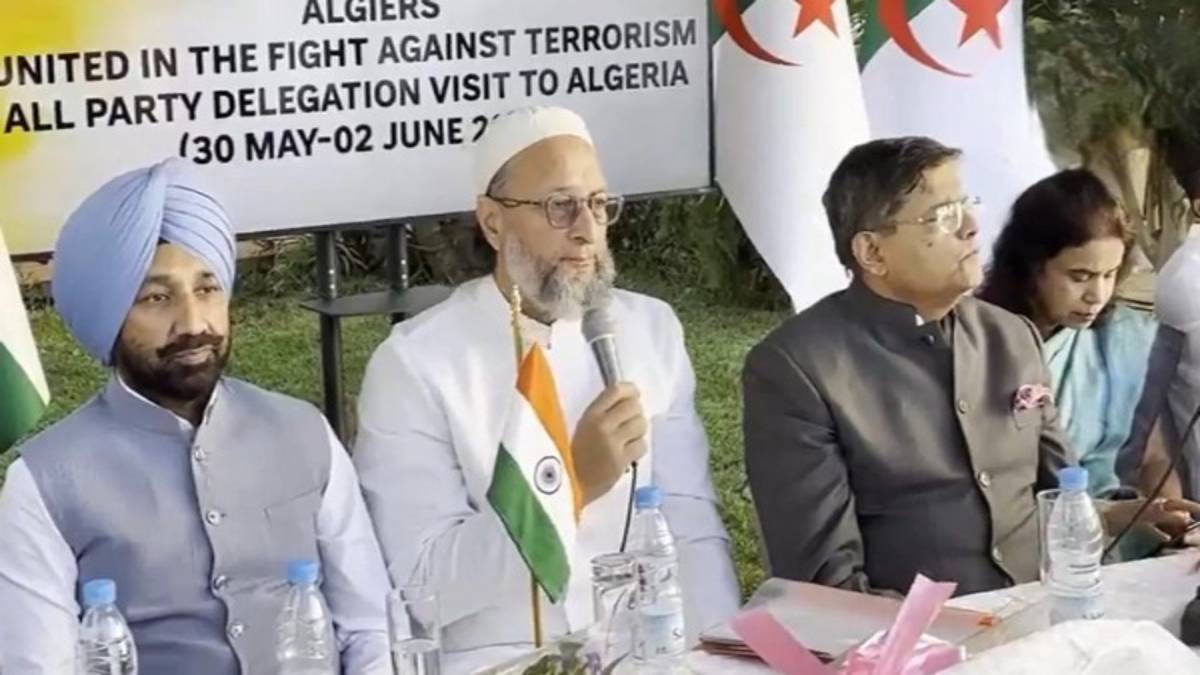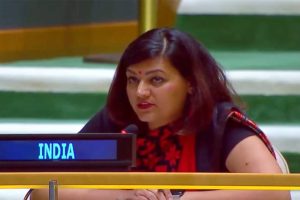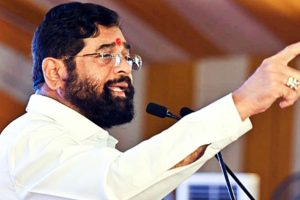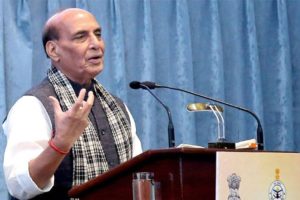AIMIM chief and Member of Parliament Asaduddin Owaisi, as part of an Indian all-party delegation to Algeria, strongly criticised Pakistan on Saturday, labelling it the “epicentre of Takfirism” and drawing parallels between Pakistan-based terror groups and global jihadist outfits like Daesh and Al-Qaeda.
Speaking to the Algerian media, think tanks, and members of the Indian diaspora, Owaisi denounced the ideology behind terrorism emanating from Pakistan. “There is no ideological difference between the terrorist groups in Pakistan and Daesh or Al-Qaeda. They falsely claim religious sanction, but Islam does not condone the killing of innocents,” he said.
Calling for Pakistan to be re-listed on the Financial Action Task Force (FATF) Grey List, Owaisi stressed the dual lifelines of terrorism: ideology and financing. “Once Pakistan was grey-listed in 2018, there was a visible dip in terror incidents. We need similar international pressure again,” he added, citing the delayed prosecution of 26/11 mastermind Zakiur Rehman Lakhvi as a case study of how international scrutiny yields results.
Owaisi also warned of the broader implications of unchecked terrorism. “This is not just about South Asia anymore. India is the world’s fourth-largest economy. The spread of terrorism from Pakistan has global consequences. Containing it is in the interest of world peace.”
Echoing these concerns, BJP MP Baijayant Panda accused Pakistan of using its nuclear capability as a protective shield for its terror infrastructure. “They fund, train, and arm terrorists openly. The world knows this, and it’s time to act collectively,” he said.
The Algerian mission is part of India’s global diplomatic outreach under Operation Sindoor, aimed at mobilising international support against cross-border terrorism. The delegation led by Baijayant Panda also includes MPs Nishikant Dubey, S. Phangnon Konyak, Rekha Sharma, Satnam Singh Sandhu, Ghulam Nabi Azad, AIMIM’s Owaisi, and former Foreign Secretary Harsh Vardhan Shringla.
India’s diplomatic offensive continues across continents, with delegations engaging foreign governments, policy experts, and civil societies to highlight the dangers of extremism and the urgent need for unified global action.





